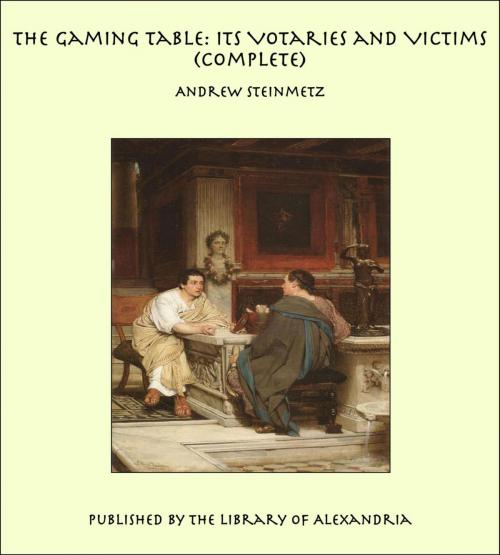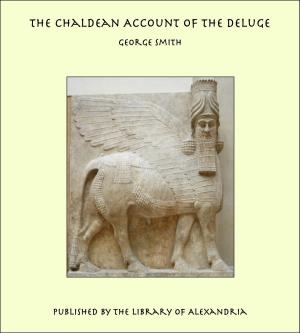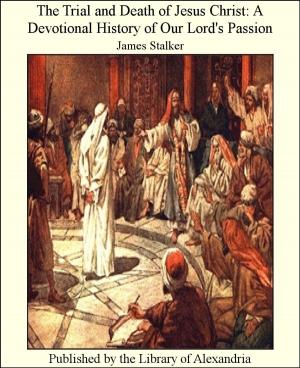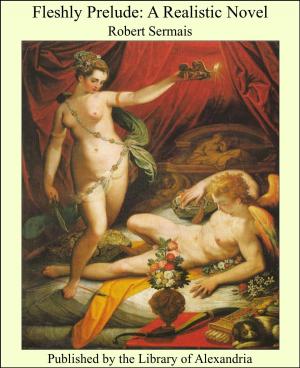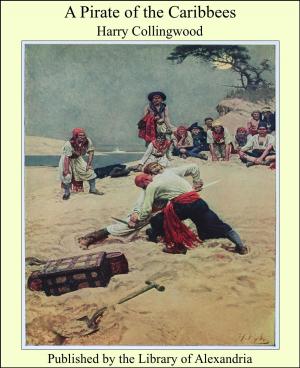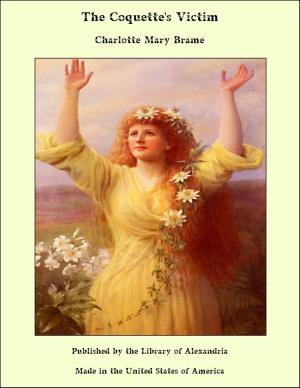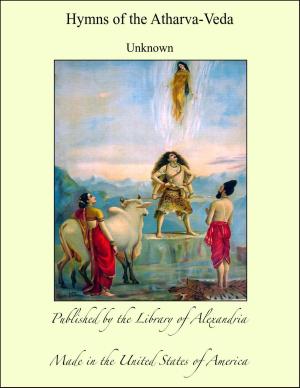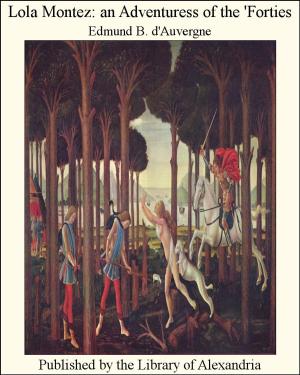The Gaming Table: Its Votaries and Victims (Complete)
Nonfiction, Religion & Spirituality, New Age, History, Fiction & Literature| Author: | Andrew Steinmetz | ISBN: | 9781465548979 |
| Publisher: | Library of Alexandria | Publication: | March 8, 2015 |
| Imprint: | Language: | English |
| Author: | Andrew Steinmetz |
| ISBN: | 9781465548979 |
| Publisher: | Library of Alexandria |
| Publication: | March 8, 2015 |
| Imprint: | |
| Language: | English |
To the readers of the present generation much of this book will, doubtless, seem incredible. Still it is a book of facts—a section of our social history, which is, I think, worth writing, and deserving of meditation. Forty or fifty years ago—that is, within the memory of many a living man—gambling was 'the rage' in England, especially in the metropolis. Streets now meaningless and dull—such as Osendon Street, and streets and squares now inhabited by the most respectable in the land—for instance, St James's Square, THEN opened doors to countless votaries of the fickle and capricious goddess of Fortune; in the rooms of which many a nobleman, many a gentleman, many an officer of the Army and Navy, clergymen, tradesmen, clerks, and apprentices, were 'cleaned out'—ruined, and driven to self-murder, or to crimes that led to the gallows. 'I have myself,' says a writer of the time, 'seen hanging in chains a man whom a short time before I saw at a Hazard table!' History, as it is commonly written, does not sufficiently take cognizance of the social pursuits and practices that sap the vitality of a nation; and yet these are the leading influences in its destiny—making it what it is and will be, at least through many generations, by example and the inexorable laws that preside over what is called 'hereditary transmission.' Have not the gambling propensities of our forefathers influenced the present generation
To the readers of the present generation much of this book will, doubtless, seem incredible. Still it is a book of facts—a section of our social history, which is, I think, worth writing, and deserving of meditation. Forty or fifty years ago—that is, within the memory of many a living man—gambling was 'the rage' in England, especially in the metropolis. Streets now meaningless and dull—such as Osendon Street, and streets and squares now inhabited by the most respectable in the land—for instance, St James's Square, THEN opened doors to countless votaries of the fickle and capricious goddess of Fortune; in the rooms of which many a nobleman, many a gentleman, many an officer of the Army and Navy, clergymen, tradesmen, clerks, and apprentices, were 'cleaned out'—ruined, and driven to self-murder, or to crimes that led to the gallows. 'I have myself,' says a writer of the time, 'seen hanging in chains a man whom a short time before I saw at a Hazard table!' History, as it is commonly written, does not sufficiently take cognizance of the social pursuits and practices that sap the vitality of a nation; and yet these are the leading influences in its destiny—making it what it is and will be, at least through many generations, by example and the inexorable laws that preside over what is called 'hereditary transmission.' Have not the gambling propensities of our forefathers influenced the present generation
